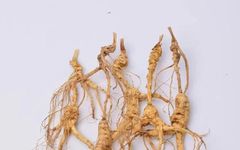Among the vast family of Chinese herbs, many are recorded in ancient texts for their longevity-promoting effects. These herbs generally have tonifying properties and can also treat diseases, thus benefiting those who are ill and strengthening those who are healthy. They can be used in formulas or taken individually. Today, we will introduce some common Chinese herbs that tonify Qi, nourish blood, moisten Yin, and reinforce Yang.
1. Qi Tonifying Herbs
1. Ren Shen (Ginseng)
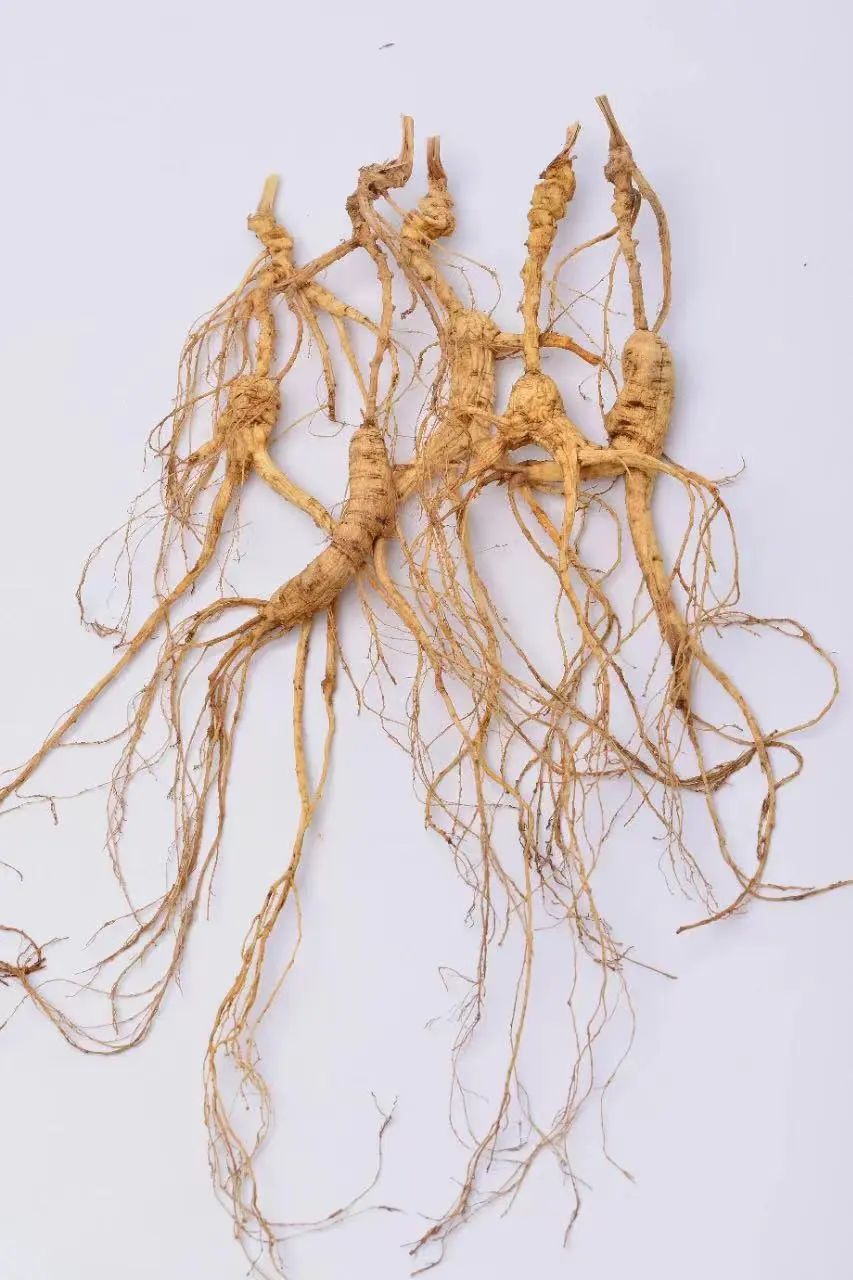
Ren Shen has a sweet and slightly bitter taste, and is warm in nature. The Shennong Bencao Jing states: “It primarily tonifies the five vital organs and calms the spirit,” and “It brightens the eyes, enhances intelligence, and prolonged use lightens the body and prolongs life.” This herb can greatly tonify Yuan Qi, generate fluids, and quench thirst, making it especially suitable for the elderly with Qi deficiency or those who have been ill for a long time.
Ren Shen decocted alone is called Du Shen Tang, which has the effect of tonifying Qi and stabilizing collapse. Elderly and weak individuals who regularly consume this soup can strengthen their bodies and resist aging.
Ren Shen sliced into pieces and dissolved in the mouth daily can nourish the body, prevent diseases, and enhance the body’s resistance.
Modern research has proven that Ren Shen can regulate the function of the reticuloendothelial system, and its ginsenosides indeed have anti-aging effects.
2. Huang Qi (Astragalus)
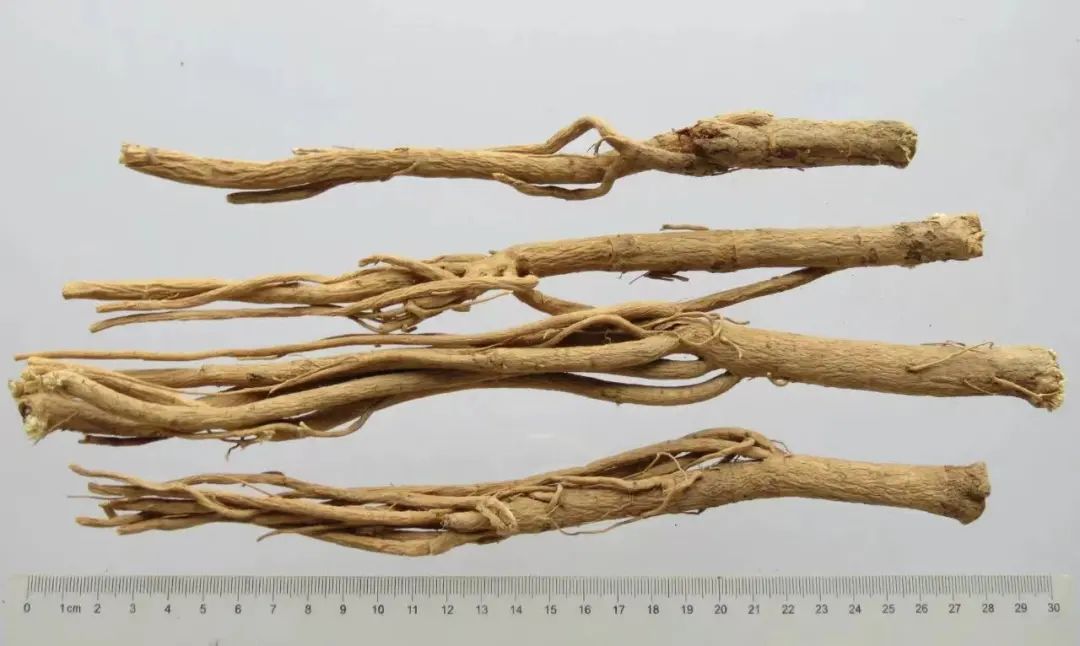
Huang Qi has a sweet taste and is slightly warm in nature. This herb can tonify Qi, raise Yang, benefit the Wei Qi, stabilize the exterior, promote urination, and reduce swelling, as well as nourish the five organs. Long-term use can strengthen bones and the body, treating various Qi deficiencies. In court health practices, Huang Qi is often used to tonify the middle Qi and nourish blood. A single dose of Huang Qi (480g) can be decocted in water, concentrated into a paste with honey, and taken with boiled water.
Modern studies show that Huang Qi can enhance the body’s resistance, regulate blood pressure and immune function, and has hormone-like effects that can improve coronary circulation and heart function. It has also been proven to extend the lifespan of certain primary cells and some diploid cell lines, which is a good indication of Huang Qi’s anti-aging properties.
3. Fu Ling (Poria)
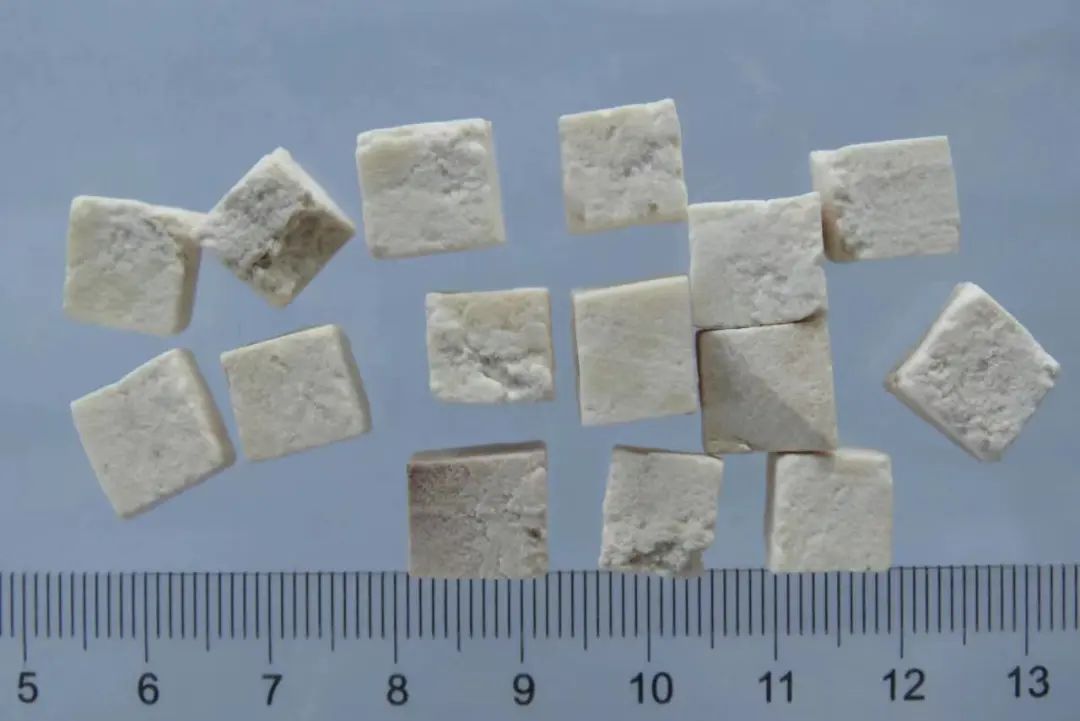
Fu Ling has a sweet and bland taste, and is neutral in nature. The Shennong Bencao Jing states: “Long-term use calms the soul and nourishes the spirit, preventing hunger and prolonging life.” This herb has the functions of strengthening the spleen and stomach, calming the heart and spirit, and promoting urination and reducing dampness. The Pujifang records that long-term use of Fu Ling can lead to longevity. Throughout history, it has been regarded as a commonly used longevity-promoting herb due to its mild properties, which can benefit the heart and spleen, promote urination, and tonify without being harsh, thus supporting the righteous and dispelling evil. Therefore, it is an excellent tonic.
Grinding white Fu Ling into fine powder, taking 15g with glutinous rice to make porridge, is known as Fu Ling Zhou. Li Shizhen stated: “Fu Ling powder porridge clears the upper and solidifies the lower.” Regular consumption of Fu Ling porridge is beneficial for elderly edema, obesity, and cancer prevention.
In the Qing dynasty, Fu Ling was made into Fu Ling cakes, which were commonly consumed as nourishing delicacies, becoming famous for preventing diseases and prolonging life.
Modern research has shown that over 90% of Fu Ling’s effective components are polysaccharides, which not only enhance the immune function of the body but also improve the body’s resistance to diseases and have strong anti-cancer effects, making it truly a great tonic for longevity.
4. Shan Yao (Chinese Yam)
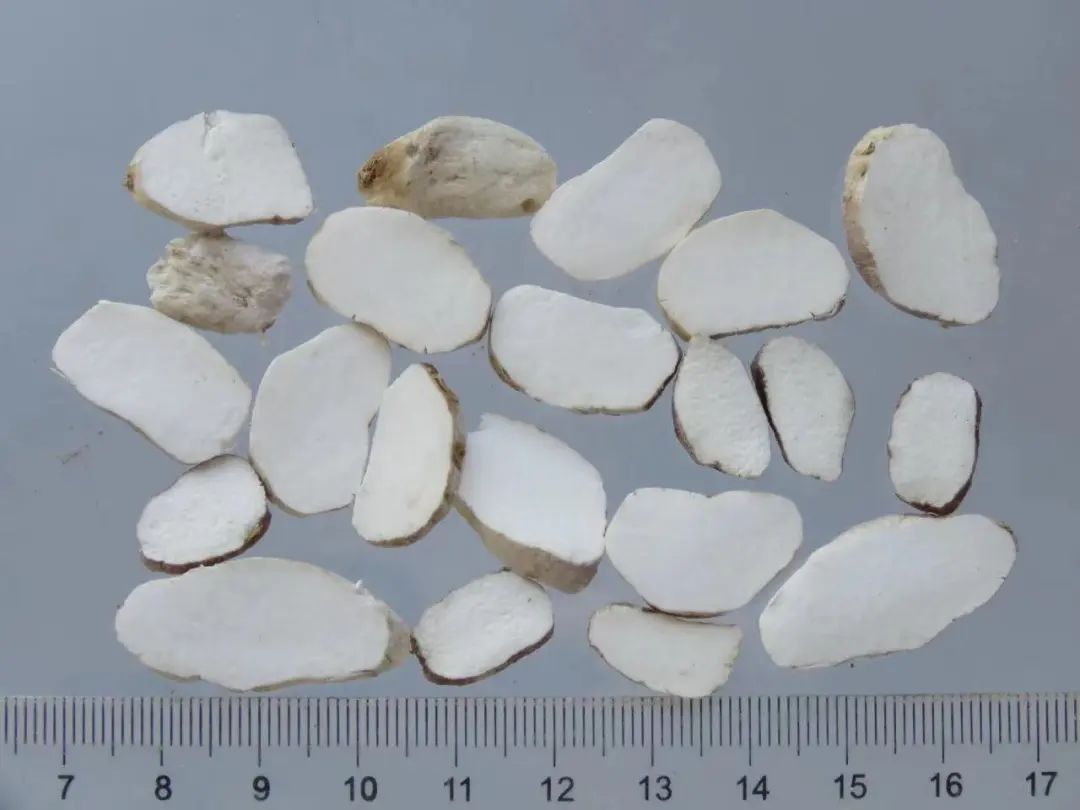
Shan Yao has a sweet taste and is neutral in nature. The Shennong Bencao Jing states: “It tonifies the middle, increases Qi strength, and promotes muscle growth; long-term use enhances hearing and vision.” This herb has the effects of strengthening the spleen, tonifying the lungs, and solidifying the kidneys while benefiting essence, making it very beneficial for middle-aged and elderly individuals who are weak and frequently ill.
The Sa Qianzai Experience Formula records a recipe for Shan Yao porridge, which uses 45-60g of dried Shan Yao slices (or 100-120g of fresh Shan Yao, cleaned and sliced) with 60-90g of glutinous rice to cook porridge. This porridge can be consumed in all seasons, morning and evening, and should be eaten warm. Regular consumption of this porridge can strengthen the spleen, tonify Qi, and alleviate diarrhea, benefiting elderly diabetes and chronic nephritis.
Modern research has shown that Shan Yao is rich in nutrients, containing amylase, choline, mucilage, glycoproteins, free amino acids, fats, carbohydrates, and vitamin C. The amylase in Shan Yao can break down into proteins and carbohydrates, thus having a nourishing effect.
5. Yi Yi Ren (Job’s Tears)
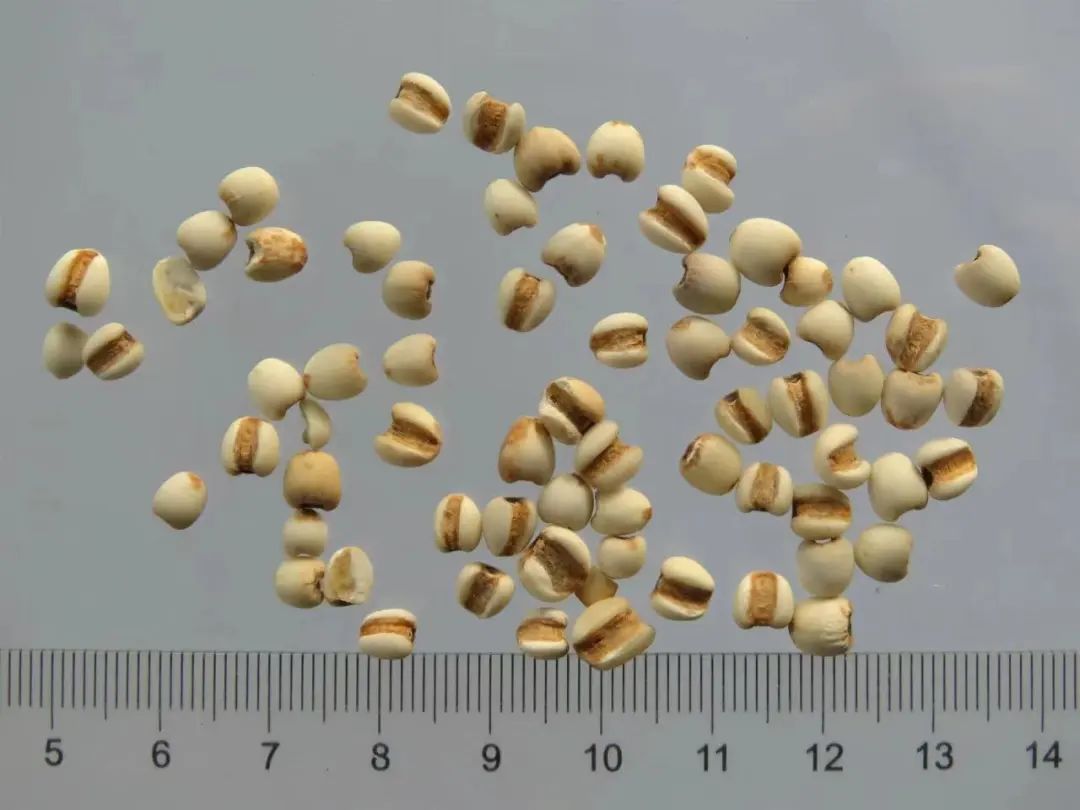
Yi Yi Ren has a sweet and bland taste, and is cool in nature. The Shennong Bencao Jing lists it as a superior herb, stating: “It treats muscle spasms, prevents bending and stretching, alleviates rheumatism, and long-term use lightens the body and benefits Qi.” This herb has the effects of strengthening the spleen, tonifying the lungs, and promoting urination.
Yi Yi Ren can be used as a grain in cooking, and there are records of using Yi Yi Ren to cook rice and porridge throughout history, which continues to this day. Washing Yi Yi Ren and cooking it with glutinous rice to make porridge, or cooking it alone, has the effects of strengthening the spleen and stomach, promoting urination, and combating cancer. Regular consumption is very beneficial for middle-aged and elderly individuals.
Modern research has shown that Yi Yi Ren is rich in carbohydrates, proteins, fats, vitamin B1, coixol, coixenolide, and various amino acids. Pharmacological tests have found that it inhibits the growth of cancer cells and causes damage to them. Due to its mild properties, sweet and bland taste, and non-toxic nature, it has become a popular health supplement.
2. Blood Nourishing Herbs
1. Shu Di Huang (Rehmannia)
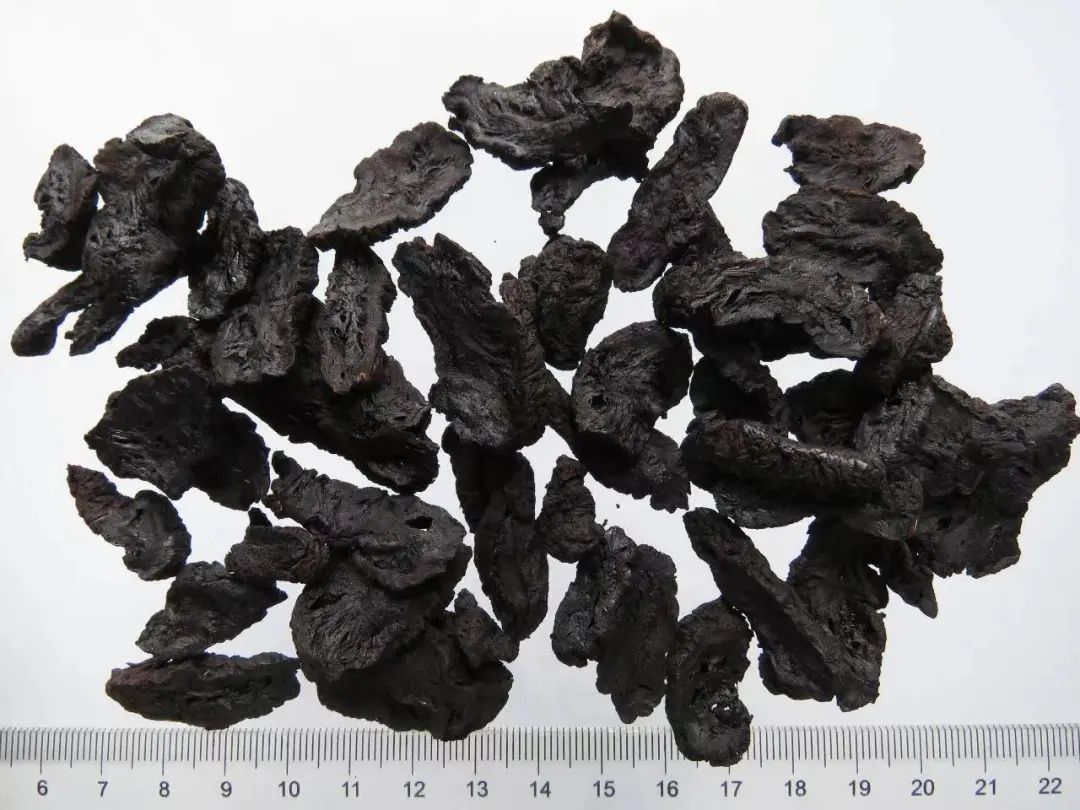
Shu Di Huang has a sweet taste and is slightly warm in nature. The Bencao Gangmu states: “It fills the bone marrow, promotes muscle growth, generates essence and blood, nourishes the five organs, opens the blood vessels, benefits the ears and eyes, and darkens the hair.” This herb has the function of nourishing blood and moistening Yin.
The Qianjin Yaofang records a recipe for Shu Di Gao, which involves boiling 300g of Shu Di Huang three times, filtering out the residue, combining the filtrate, and adding an appropriate amount of honey to make a paste, which is then stored in a bottle. The recommended dosage is two tablespoons (about 9-15g) taken 1-2 times a day with boiled water. It is effective for blood deficiency and kidney essence deficiency, nourishing blood, moistening Yin, and benefiting the kidneys.
Modern research shows that this herb has good effects on strengthening the heart, promoting urination, and lowering blood sugar.
2. He Shou Wu (Fo-Ti)
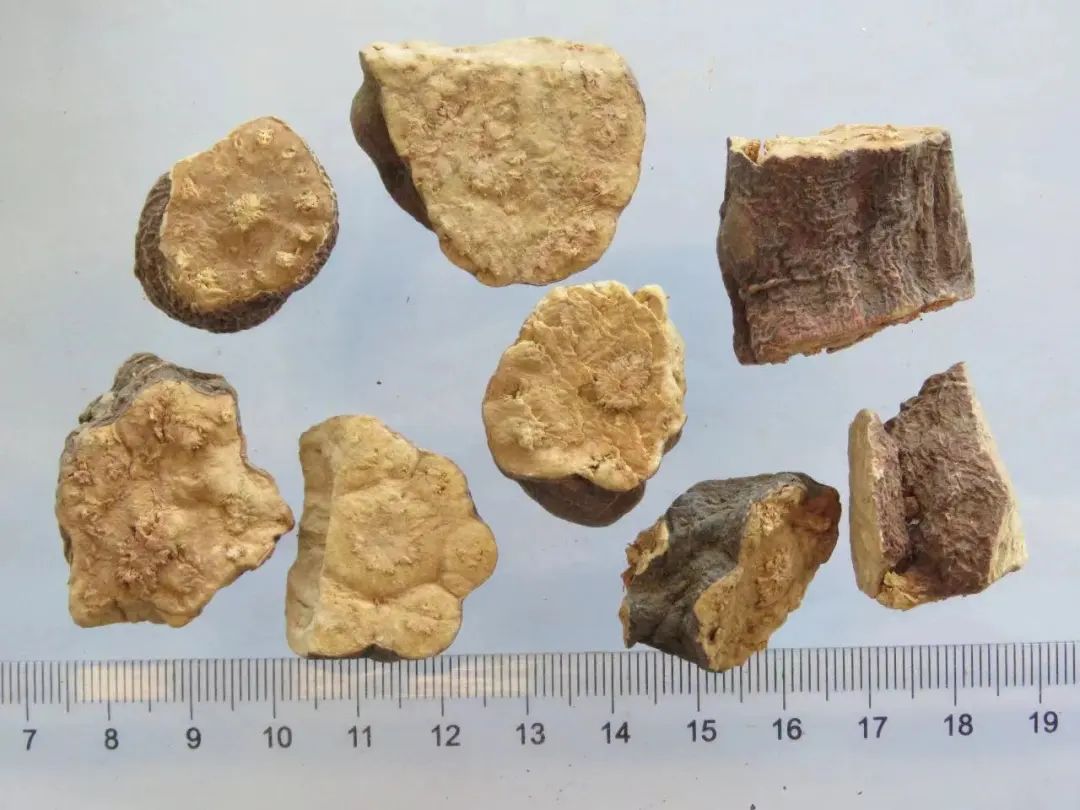
He Shou Wu has a bitter, sweet, and astringent taste, and is warm in nature. The Kaibao Bencao states: “It benefits Qi and blood, darkens hair, improves complexion. Long-term use strengthens bones and muscles, benefits essence, and prolongs life.” This herb has the effects of nourishing essence and blood, astringing essence to stop leakage, and tonifying the liver and kidneys. The Ming dynasty physician Li Zhongzi stated: “He Shou Wu is especially important for the elderly, and long-term use prolongs life.”
He Shou Wu is commonly used in pills, powders, and decoctions, and can be boiled in water, soaked in wine, or made into a paste, often combined with other herbs.
Modern research indicates that He Shou Wu contains anthraquinones, lecithin, starch, and crude fat. Lecithin plays a significant role in the growth and development of the human body, especially in nourishing the central nervous system. It also has a strengthening effect on the heart.
Additionally, reports suggest that He Shou Wu can lower blood lipids and alleviate the formation of atherosclerosis. Thus, it is evident that He Shou Wu’s longevity-promoting effects are achieved through strengthening the nerves, enhancing heart function, lowering blood lipids, and alleviating arterial hardening, thereby improving the body’s constitution.
3. Long Yan Rou (Longan Flesh)
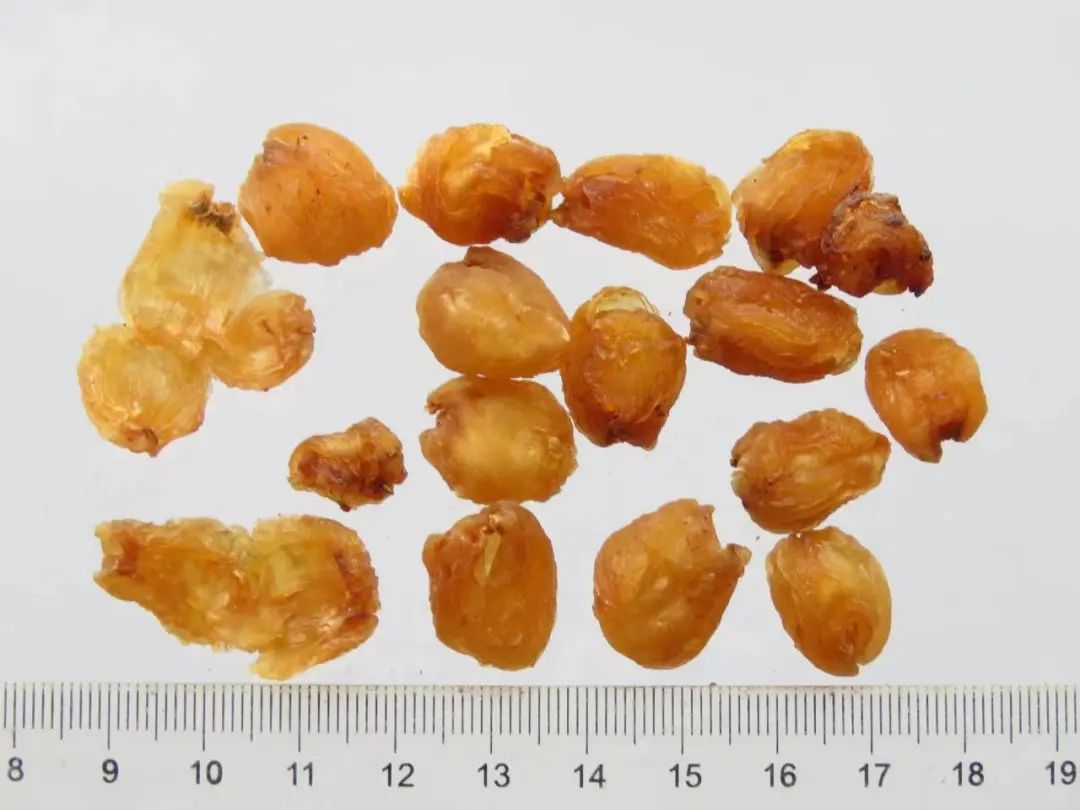
Long Yan Rou has a sweet taste and is warm in nature. The Shennong Bencao Jing states: “Long-term use strengthens the spirit and intelligence, lightens the body, and prevents aging.” This herb has the functions of nourishing the heart and spleen, and benefiting Qi and blood.
The Qing dynasty health expert Cao Tingdong wrote in his book Laolao Hengyan about Long Yan Rou porridge, which consists of 15g of Long Yan Rou, 10g of red dates, and 60g of glutinous rice cooked together. This porridge nourishes the heart, calms the spirit, strengthens the spleen, and nourishes blood, and can be consumed once or twice daily. The book states: “Long Yan Rou porridge opens the appetite, strengthens the spleen, nourishes the heart, enhances intelligence, and calms the five organs, with significant effects.” However, it should not be used by those with internal heat.
Modern scientific research has proven that Long Yan Rou contains vitamin A and B, glucose, sucrose, and tartaric acid. Clinical reports indicate it has certain efficacy for neurogenic palpitations.
4. Ejiao (Donkey-hide Gelatin)
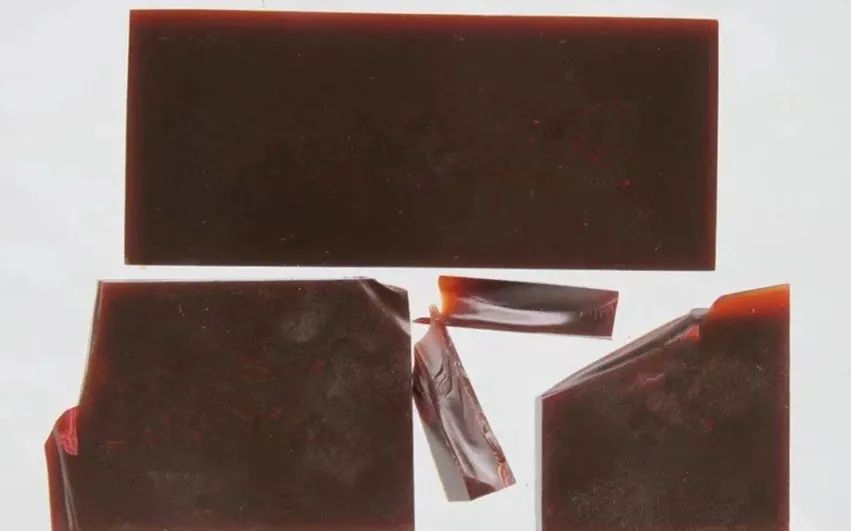
Ejiao has a sweet taste and is neutral in nature. The Shennong Bencao Jing states: “Long-term use lightens the body and benefits Qi.” This herb has the effects of nourishing blood, moistening Yin, stopping bleeding, stabilizing pregnancy, promoting urination, and moistening the large intestine, making it an excellent blood tonic.
This herb can be taken alone, dissolved in boiling water, or hot yellow wine; or it can be stewed in water, with a dosage of 3-6g each time. It is suitable for various symptoms of blood deficiency.
Modern research shows that this herb contains collagen, various amino acids, calcium, sulfur, and other components, which accelerate the production of red blood cells and hemoglobin, and promote blood coagulation, thus being effective in nourishing and stopping bleeding.
5. Zi He Che (Human Placenta)
Zi He Che has a sweet and salty taste, and is slightly warm in nature. The Bencao Jing Shu states: “Human placenta is a medicine for both Yin and Yang deficiencies, with the ability to return to the original state.” This herb has the effects of nourishing blood, tonifying Qi, and benefiting essence.
Zi He Che can be taken alone or in formulas. When taken alone, it can be stewed or ground into powder. A fresh placenta is cleaned, the blood vessels are removed, and it is stewed for consumption. Alternatively, it can be cleaned, dried, and ground into fine powder, with a dosage of 3-10g taken with warm water.
Modern experimental research and clinical practice have proven that Zi He Che has hormone-like effects, promoting the development of mammary glands and the uterus; due to the presence of antibodies and interferon in the placenta, it can enhance the body’s resistance, providing immune and anti-allergic effects, and can prevent and treat certain diseases.
3. Yin Moistening Herbs
1. Gou Qi Zi (Goji Berries)
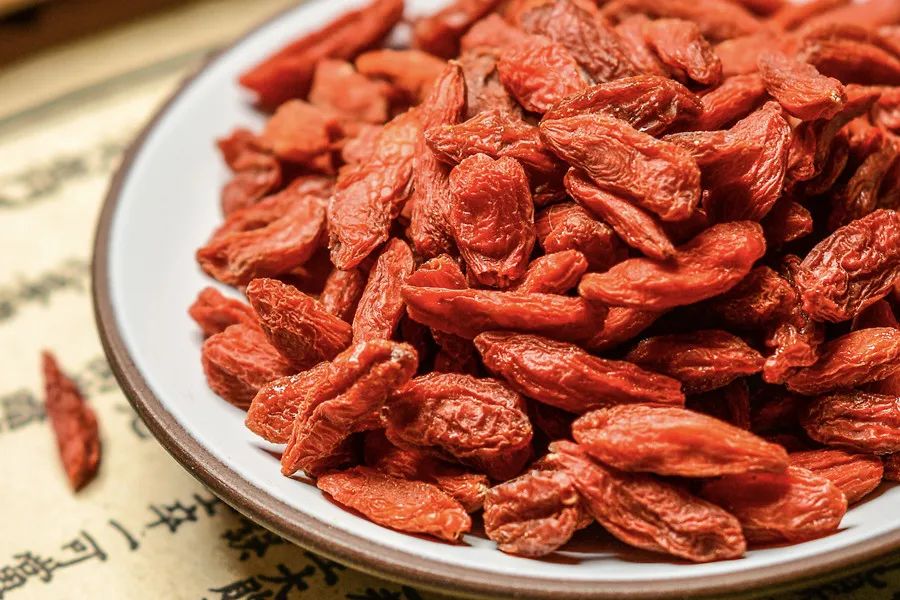
Gou Qi Zi has a sweet taste and is neutral in nature. The Shennong Bencao Jing states: “Long-term use strengthens bones and muscles, lightens the body, and prevents aging.” The Bencao Jing Shu states: “Gou Qi Zi nourishes blood and moistens, can also reduce heat, and is especially effective in tonifying the kidneys, moistening the lungs, generating fluids, and benefiting Qi, making it a key herb for those with insufficient true Yin of the liver and kidneys, and internal heat due to fatigue. Among the elderly, 70-80% have Yin deficiency, so it is considered a superior herb for nourishing essence and brightening the eyes.”
The Taiping Shenghui Fang records a recipe for Gou Qi Zhou, which uses 30g of Gou Qi Zi and 60g of glutinous rice to cook porridge. This is effective for middle-aged and elderly individuals suffering from dizziness, blurred vision, weakness in the waist and knees, and age-related diabetes due to liver and kidney Yin deficiency. The Bencao Gangmu states: “Gou Qi Zi porridge nourishes essence and blood, benefiting kidney Qi,” making it particularly suitable for elderly individuals with blood deficiency and kidney deficiency.
Modern research shows that Gou Qi Zi contains betaine, carotene, thiamine, riboflavin, niacin, ascorbic acid, calcium, phosphorus, iron, and other components, which inhibit the accumulation of fat in liver cells, prevent fatty liver, and promote the regeneration of liver cells.
2. Yu Zhu (Polygonatum)
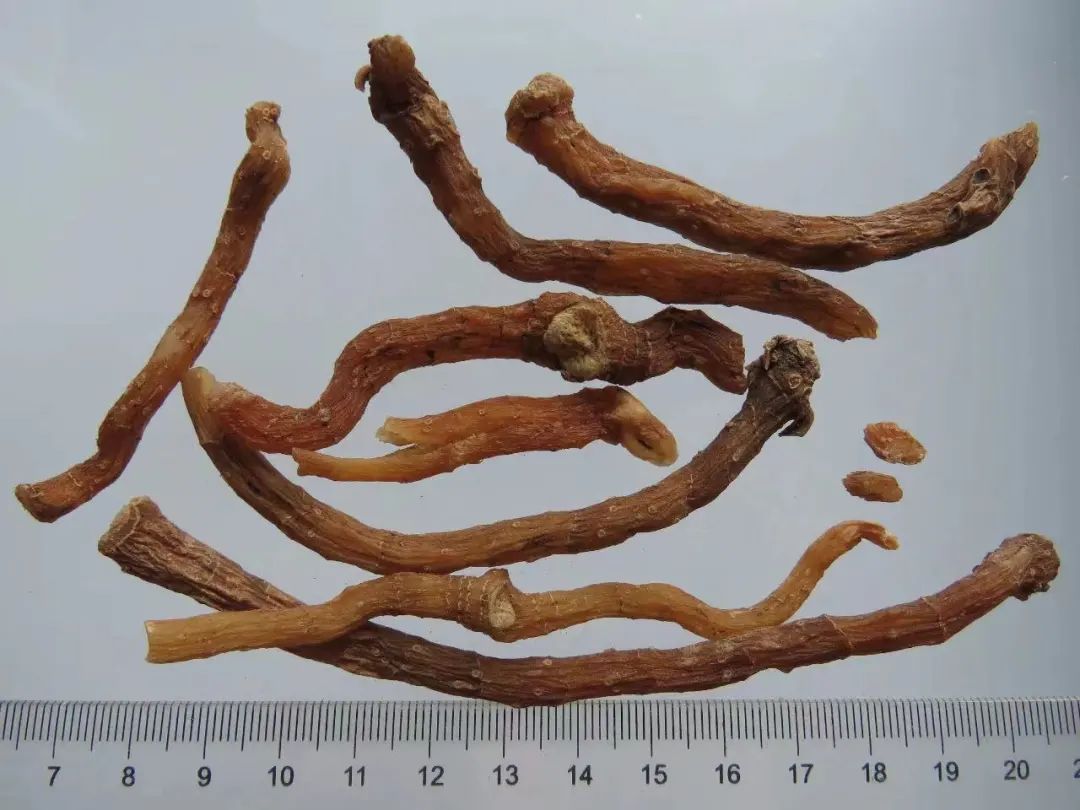
Yu Zhu has a sweet taste and is neutral in nature. The Bencao Shiyi states: “It primarily benefits intelligence, regulates Qi and blood, and strengthens the body.” This herb can nourish Yin, moisten the lungs, and alleviate thirst, making it especially suitable for elderly individuals with Yin deficiency.
The Taiping Shenghui Fang records a method for consuming Yu Zhu: “On the ninth day of the second month, collect and chop Yu Zhu roots, boil them in two stones of water from dawn until dusk, knead them by hand, strain the juice, and boil it down until thick. The residue can be dried and ground into powder, and made into pills the size of a chicken’s head. Each pill can be taken with soup, three times a day, guiding Qi meridians, strengthening bones, treating wind and dampness, removing wrinkles, and improving complexion, with long-term use promoting longevity.”
Modern research has shown that this herb has blood sugar-lowering effects and a strengthening effect on the heart, making it beneficial for diabetic patients and those with palpitations. This herb is nourishing without being greasy, and can be used for any condition of insufficient body fluids; however, it should be used cautiously or avoided in cases of abdominal distension and excessive damp phlegm.
3. Huang Jing (Polygonatum)
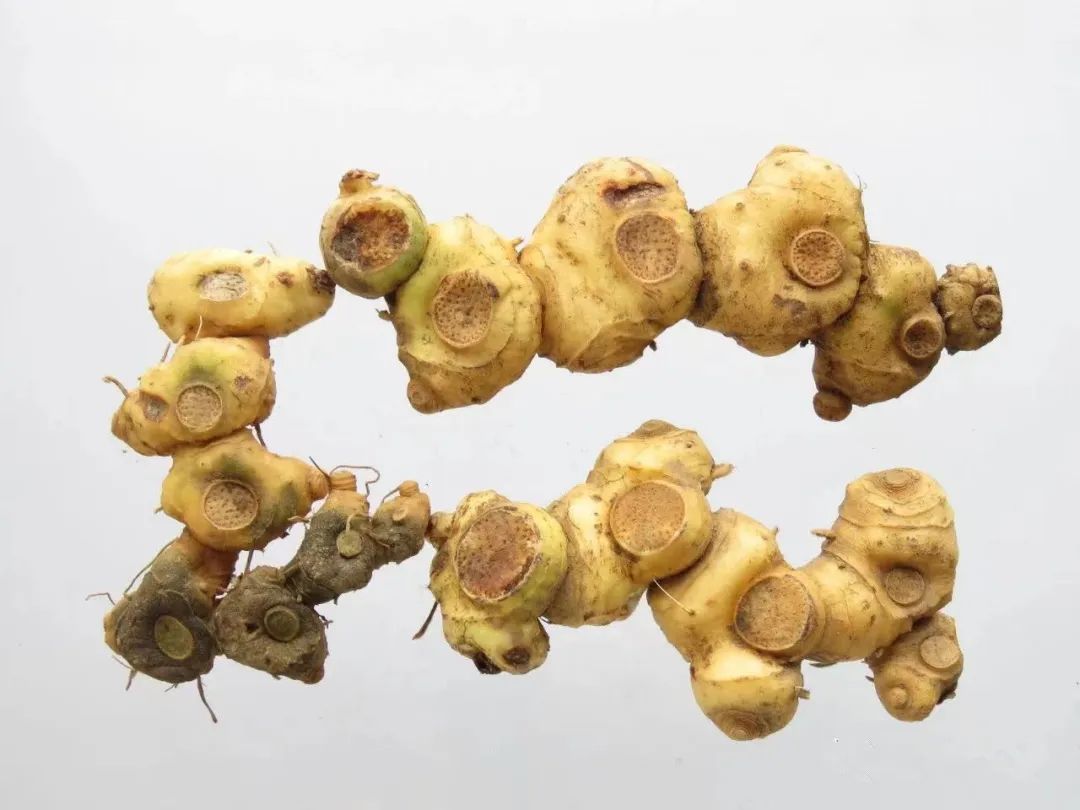
Huang Jing has a sweet taste and is neutral in nature. The Bencao Fengyuan states: “It broadens the middle, benefits Qi, harmonizes the five organs, fills the muscles, and strengthens the bone marrow, all of which are functions of nourishing Yin.” This herb benefits the spleen and stomach, moistens the heart and lungs, and fills essence and marrow.
The Taiping Shenghui Fang records a method for consuming Huang Jing: “Wash the Huang Jing roots, cut them finely, and remove the bitter juice with running water. After nine steams and nine suns, consume them. This is beneficial for those with Qi and Yin deficiency, fatigue, and dry mouth with little fluid.”
Modern research has shown that Huang Jing has blood pressure-lowering effects and can prevent atherosclerosis and fatty infiltration of the liver. Therefore, regular consumption of Huang Jing is beneficial for patients with lung Qi deficiency and can prevent the occurrence of certain cardiovascular diseases.
4. Sang Shen (Mulberries)
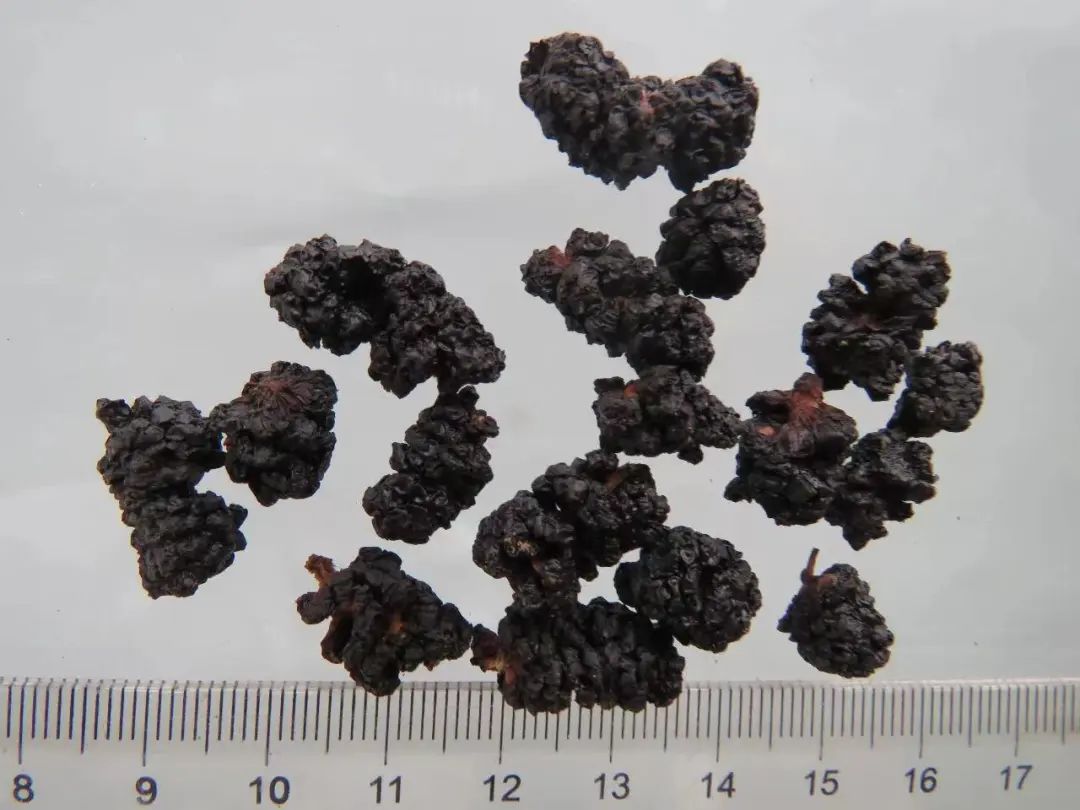
Sang Shen has a bitter taste and is cold in nature. The Bencao Shiyi states: “It benefits the five organs and joints, promotes blood circulation. Long-term use prevents hunger and maintains youthfulness.” The Dian Nan Bencao states: “It benefits the kidneys and solidifies essence, and long-term use darkens hair and brightens vision.” This herb can nourish the liver and kidneys, and has the effects of moistening Yin and nourishing blood.
To prepare, boil Sang Shen in water, filter out the residue, and store the liquid in a ceramic container, simmering it over low heat until it becomes a paste, then mix with an appropriate amount of honey and store in a bottle. It can be taken twice daily, with each dose being 9-15g (about one or two tablespoons), mixed with warm water. This has the functions of nourishing the liver and kidneys, and enhancing hearing and vision.
Modern pharmacological research has shown that Sang Shen contains glucose, fructose, tannins, malic acid, calcium, inorganic salts, and vitamins A and D. Clinically, it is used for anemia, neurasthenia, diabetes, and Yin deficiency type hypertension.
5. Nu Zhen Zi (Ligustrum Fruit)
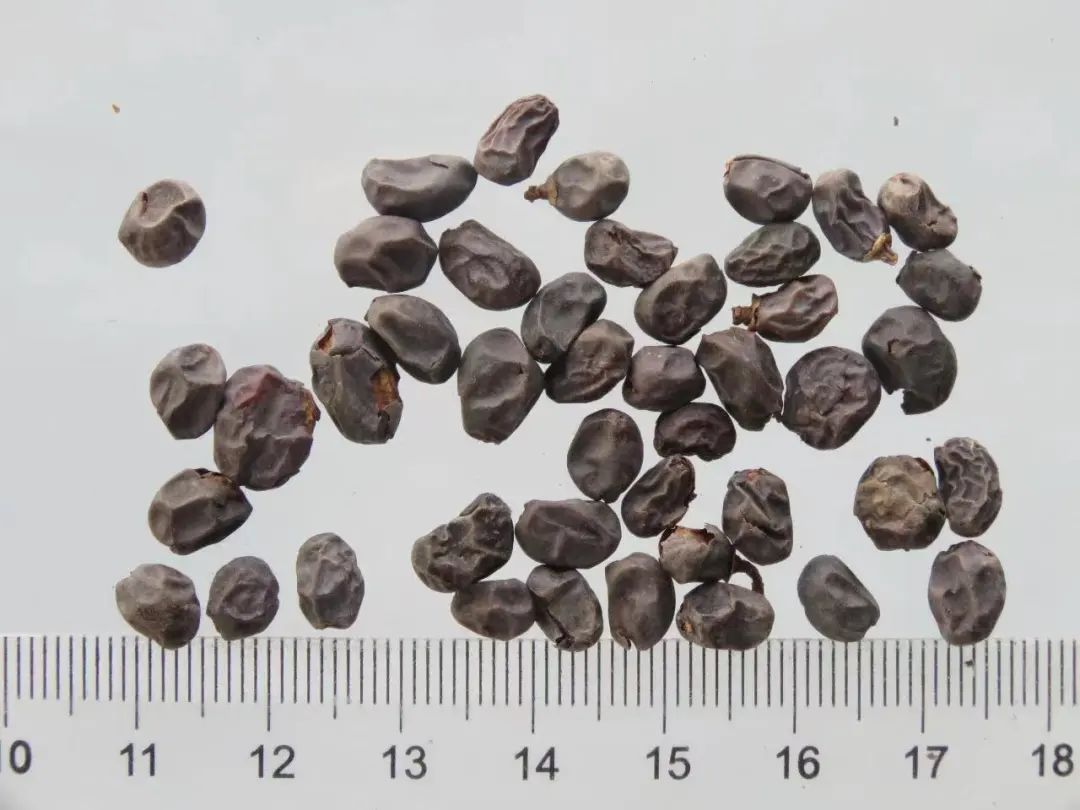
Nu Zhen Zi has a sweet and slightly bitter taste, and is neutral in nature. The Shennong Bencao Jing states: “It primarily tonifies the middle, calms the five organs, nourishes the spirit, and eliminates various diseases. Long-term use promotes health and prevents aging.” The Bencao Gangmu states: “It strengthens Yin, benefits the waist and knees, and darkens white hair, brightening vision.” This herb can nourish the liver and kidneys, strengthen Yin, and brighten the eyes, being nourishing without being greasy, but should be used cautiously in those with spleen and stomach deficiency and cold diarrhea.
Modern research has shown that the fruit skin of Nu Zhen Zi contains triterpenoids, such as oleanolic acid, D-mannitol, and glucose. The seeds contain fatty oils, including stearic acid, oleic acid, and linoleic acid. This herb has heart-strengthening and diuretic effects, and can also be used for lymphatic tuberculosis and pulmonary tuberculosis with tidal fever.
4. Yang Reinforcing Herbs
1. Tu Si Zi (Cuscuta Seed)
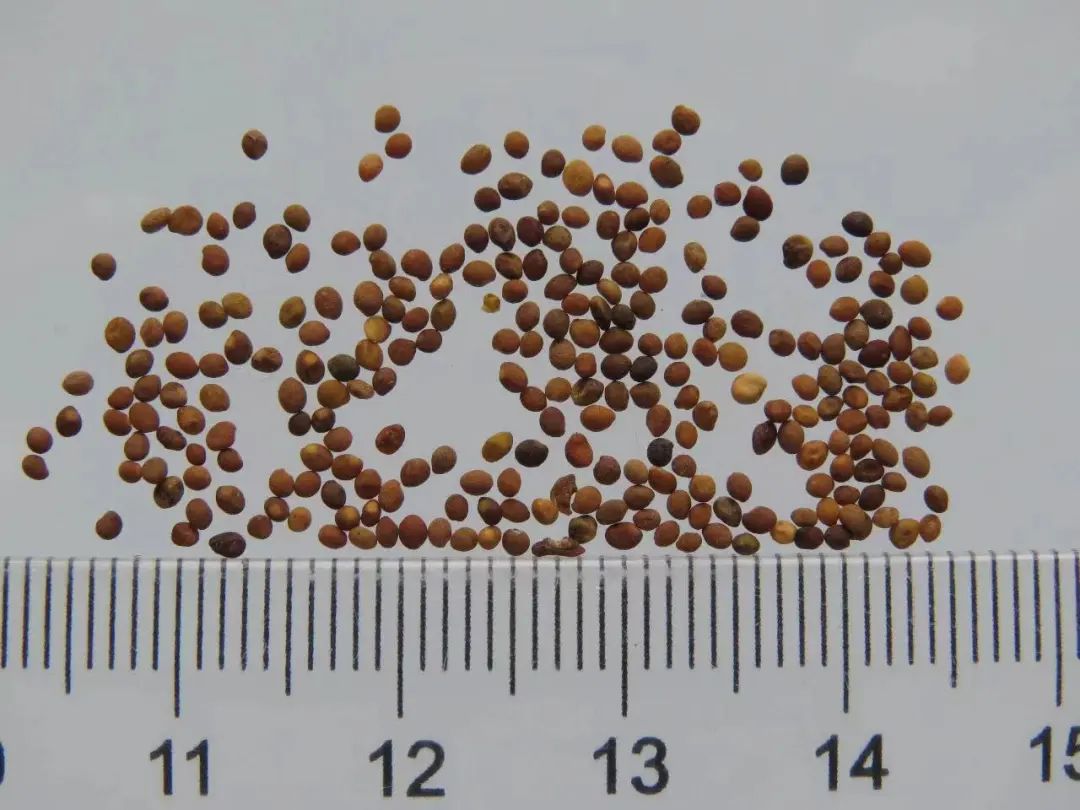
Tu Si Zi has a sweet and spicy taste, and is slightly warm in nature. The Shennong Bencao Jing states: “It tonifies deficiencies and increases Qi strength,” while the Ming Bian Jue Lu states: “Long-term use brightens the eyes and prolongs life.” This herb has the effects of tonifying the liver and kidneys, benefiting essence, strengthening bones, and increasing Qi strength.
The Taiping Shenghui Fang records a method for consuming Tu Si: “Soak in one dou of wine, dry and soak again, then dry again, stopping when the wine is used up, then crush and sift. Each time, take 6g with wine, twice daily. This herb harmonizes the Qi, tonifying both Yang and Yin, with the characteristics of warming without being drying, and tonifying without being stagnant.”
Modern research has shown that Tu Si Zi contains resin-like sugars, a large amount of amylase, and vitamin A-like substances.
2. Lu Rong (Deer Antler Velvet)

Lu Rong has a sweet and salty taste, and is warm in nature. The Shennong Bencao Jing states: “It benefits Qi and strengthens will, preventing aging,” while the Bencao Gangmu states: “It generates essence, nourishes marrow, nourishes blood, and strengthens Yang, and strengthens bones.” This herb has the effects of tonifying kidney Yang, benefiting essence and blood, and strengthening bones.
Lu Rong can be taken alone or stewed. When taken alone, it should be ground into fine powder, with a dosage of 0.5-1g each time. When stewed, 1.5-4.5g should be placed in a cup with water and stewed in a double boiler. It should be avoided by those with Yin deficiency and excess heat, as well as those with lung heat and liver Yang hyperactivity.
Modern scientific research has shown that Lu Rong contains deer antler essence, which is a male hormone, and also contains gelatinous calcium phosphate, calcium carbonate, cartilage, and chloride, which can reduce fatigue, improve appetite and sleep. It also promotes the regeneration of red blood cells, hemoglobin, and reticulocytes, and aids in the healing of fractures and ulcers, making it a good overall tonic.
3. Rou Cong Rong (Cistanche)
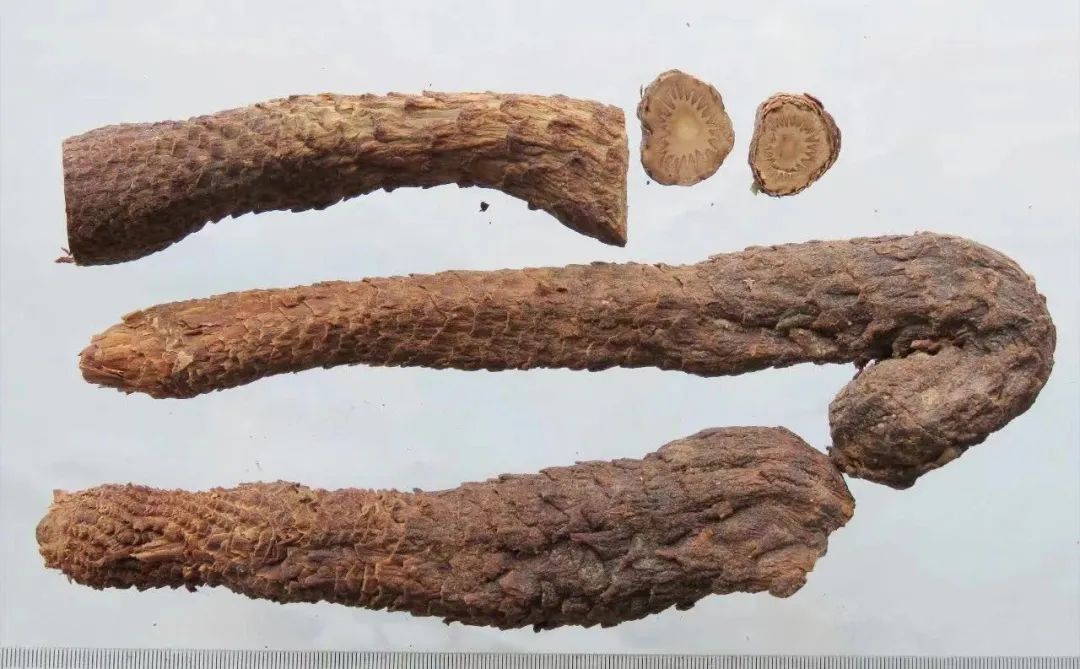
Rou Cong Rong has a sweet and salty taste, and is warm in nature. The Shennong Bencao Jing states: “It nourishes the five organs and benefits essence and Qi,” while the Yao Xing Lun states: “It benefits marrow, improves complexion, and prolongs life.” This herb has the effects of tonifying the kidneys and assisting Yang, and moistening the intestines and promoting bowel movements.
This herb can be taken alone, boiled in water, with a dosage of 6-15g. It can also be cooked into porridge; the Shennong Bencao Jing states: “Rou Cong Rong is suitable for the elderly with dryness and constipation, and should be cooked into porridge.” This involves cooking Rou Cong Rong with rice and lamb to make porridge, which has the effects of tonifying the liver and kidneys and strengthening the body.
Modern research has shown that Rou Cong Rong contains various bioactive substances, including alkaloids, glycosides, organic acids, and has hormone-like effects, as well as lowering blood pressure, strengthening the heart, and enhancing the body’s resistance.
4. Du Zhong (Eucommia Bark)
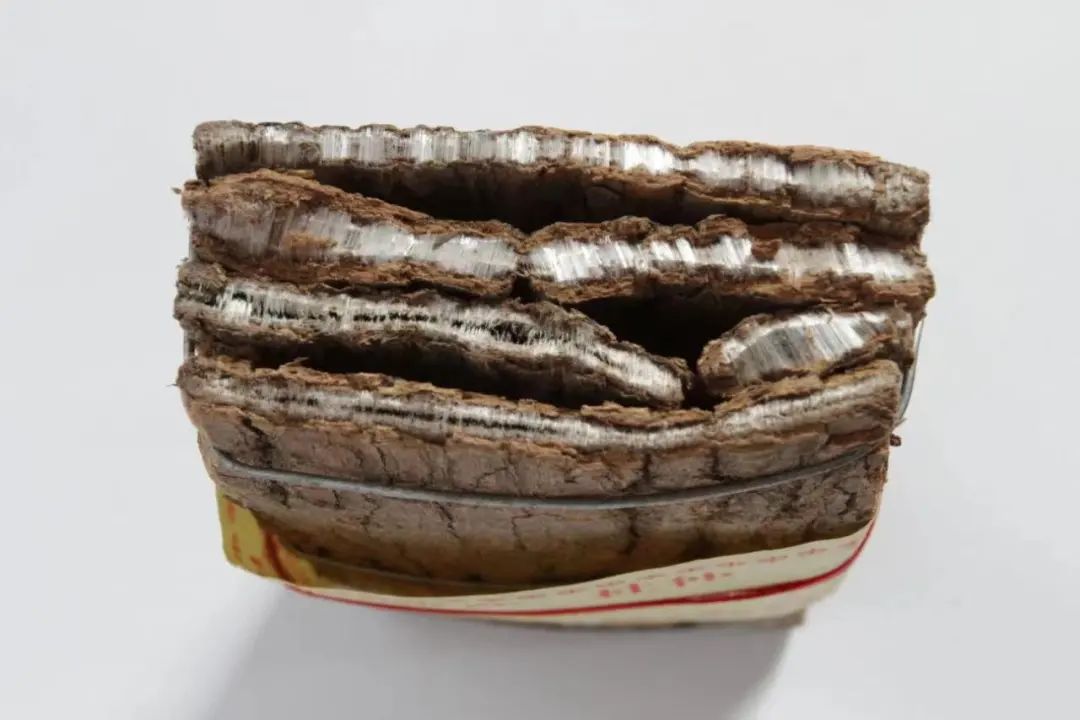
Du Zhong has a sweet taste and is warm in nature. The Shennong Bencao Jing states: “It tonifies the middle, benefits essence and Qi, strengthens bones, and enhances will… long-term use lightens the body and resists aging.” This herb has the effects of tonifying the liver and kidneys, strengthening bones, and stabilizing pregnancy.
Modern scientific research has shown that Du Zhong contains duzhong acid, which is a polymer of isoprene, and also contains resin. Animal experiments have demonstrated that Du Zhong has sedative and blood pressure-lowering effects.
 【Source: This article is compiled from Traditional Chinese Medicine Health Studies, with images of medicinal plants sourced from the WeChat account of Medicinal Plants Illustrated】
【Source: This article is compiled from Traditional Chinese Medicine Health Studies, with images of medicinal plants sourced from the WeChat account of Medicinal Plants Illustrated】

